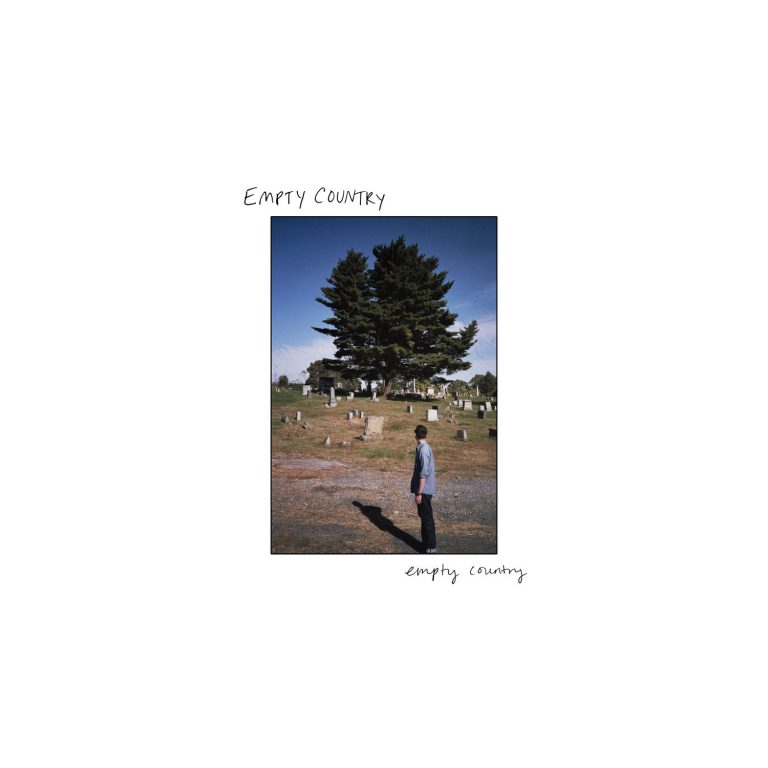Ever since arriving as leader of Cymbals Eat Guitars in 2009 with Why There Are Mountains, Joe D’Agostino has seemed like a person who’s simultaneously awed and horrified by the grandiosity of the world and everything that’s going on in it. Even then, as a 20-year-old, he would inhabit characters in his songs, through whom he would express unique worldviews and personal stories, full of fear, wonder, drugs, loss and love. He continued to hone both the lyrical and musical elements through Cymbals’ four-album run, finishing with the John Congleton-produced Pretty Years in 2016, which was the band’s most approachable and hook-heavy record.
Now reborn as Empty Country, a solo project with the help of a bunch of friends, he’s starting this cycle again: “I treated the process of making this record a lot more like a first record,” D’Agostino says. “I got the chance to build everything meticulously, and think everything out in a way I hadn’t in many years.” This rings true in listening to the exquisitely textured Empty Country, which is a bit more impulse-driven in its song structures and also makes use of a mature-sounding alt-country palette. That’s not to say that D’Agostino’s passion has waned; there are still plenty of explosive moments through this record, both musically and lyrically.
Any Cymbals Eat Guitars fan will tell you that to truly appreciate their music you should sit and read along the words as you listen, and that remains true with Empty Country. D’Agostino’s knack for poetic detail and ability to present a character’s world within a song is stronger than ever, and the instrumental dynamics allow these to be more of a focal point. Every song has terrific sonic and narrative depth, from the swashbuckling “Ultrasound”, which focuses around a woman being scanned for cancer, to the deceptively upbeat “Becca”, which tells the tale of a woman who gives out non-protective glasses at Disney during an eclipse, causing unsuspecting wearers to go blind: “Feeling for the light switch / They will hear the ocean.”
Even when he drifts towards these less-salubrious types there’s always an empathic streak that comes from the details of their lives. Opener “Marian” is about a miner who has seen his own death in a mine collapse, but for now he’s focusing on his new-born child, named for his grandmother. Following track “Diamond” could be autobiographical, as it tells of the struggle and pleasure of a committed relationship, capturing the ego and the devotion: “You know your home is wherever I am / I say awful things / ‘Cause it makes you smile / with the empty glint of a diamond mine.”
Sometimes all it takes for D’Agostino to hit his mark is simple observational snippets. “Untitled” is pretty much just a list of things witnessed during a day on LSD, building from placid beauty to excoriating wildness and back again. “Clearing” takes us into the mind of someone wandering in a forest whose brain has been dried out by prescription acne remover Accutane, which gives him hallucinatory visions that flourish in D’Agostino’s falsetto, piercing through the rustic swell of piano and strings.
The most affecting songs on Empty Country are at its core, where the subject matter is more obviously taken from D’Agostino’s life. “Chance” is named for and written from the perspective of his father-in-law, employing twinkling keys and sliding strings in delicate ode to fatherhood, animating the moments when he realises he has to change his ways for his child: “Iʼve been laying off the soft packs / Ever since our human angel appeared.” Next track “Emerald” takes us straight into D’Agostino’s dreams and fears; while his wife sleeps he disassociates into a melange of moments snatched from his cortex, the song jerking back and forth from pleasant lilt to torrid grind with illusionary smoothness that matches his shifting memories.
To end Empty Country we have “SWIM”, where D’Agostino takes us back into the thoughts of an unwholesome character who was once a “blue-eyed sociopath”. The song finds him approaching a century on this planet and looking back on a life of armed robbery and other crimes with no regrets: “Weʼre evil, baby, sorry / I guess some people have to be.” Amidst Empty Country’s gorgeously warm alt-country, this statement actually seems perfectly pleasant, and when he offers “come and live it down with me,” with violins spiralling heavenwards to close the record, you’re more than inclined to accept, kick back, and experience it all again.


